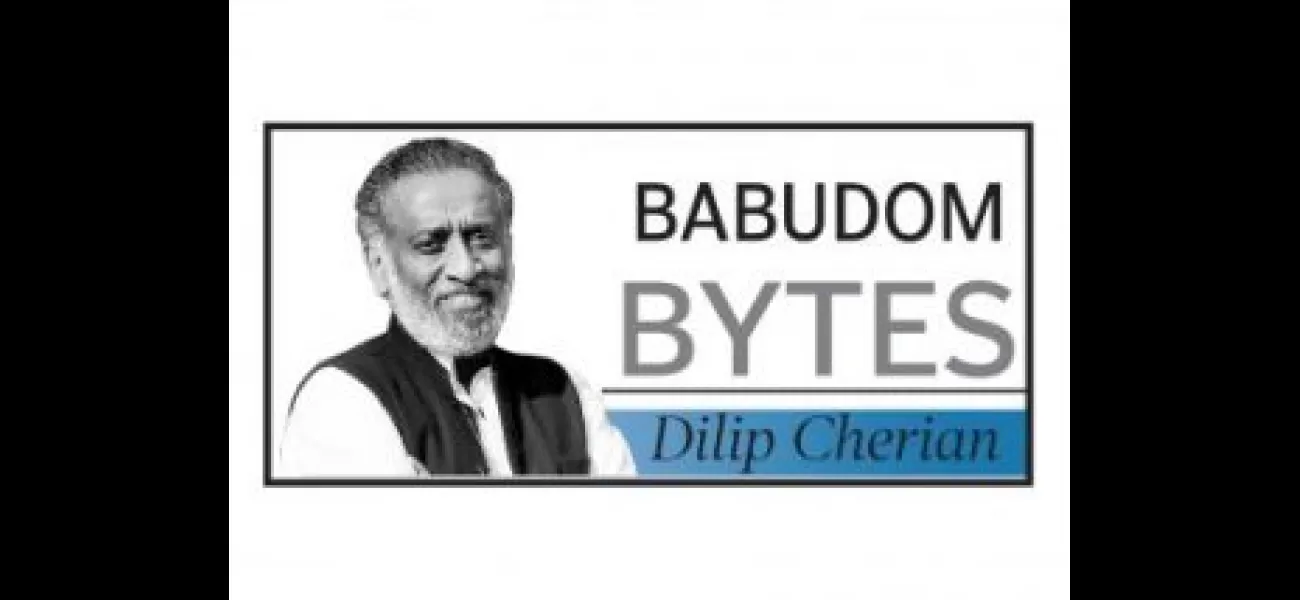Coalition dynamics refers to the interactions and relationships between individuals or groups within a coalition, and how these dynamics affect the overall functioning and success of the coalition.
With the introduction of coalition dharma and Narendra Modi's third term as Prime Minister, there is uncertainty among government officials about potential changes in ministries and departments. Who will stay and who will go?
June 15th 2024.

As Prime Minister Narendra Modi embarks on his third term as head of the NDA government, the political landscape has undergone a significant shift with the introduction of coalition dharma. This has led to a mix of hope and apprehension among government officials, particularly regarding potential changes within ministries and departments. The question on everyone's mind is who will remain in their positions and who will be replaced. However, all eyes are on the Prime Minister's Office (PMO), which has been a formidable force during Modi's previous two terms.
With the formation of the Cabinet and the allocation of portfolios, it is evident that the main message of this exercise is continuity. This theme is expected to extend to the composition of the PMO as well. It is believed that officers from the Gujarat cadre, who have worked closely with Modi during his tenure as Chief Minister, will continue to play key roles due to their deep trust and familiarity with the Prime Minister. However, some speculate that the recent electoral setback in Uttar Pradesh may lead to a reassessment, with officers like Arvind Sharma, who has been Modi's liaison with Chief Minister Yogi Adityanath, potentially being called back to the PMO.
There is also speculation about changes within the PMO, with trusted aides like Cabinet Secretary Rajiv Gauba and Comptroller and Auditor General G.C. Murmu reportedly under scrutiny. This could be part of a larger strategy to bring fresh perspectives into the government. However, the coalition factor has further complicated the situation, with even the Speaker's position now in contention. Any changes in these key positions will have a significant impact on the functioning of various institutions during the NDA government's tenure. Despite this uncertainty, it is expected that the core team handling communications, secretarial work, and policy matters will remain stable, as their expertise and continuity are crucial for maintaining efficiency during this tumultuous period.
Meanwhile, in Andhra Pradesh, the recent victory of the TDP-led alliance has resulted in N. Chandrababu Naidu assuming the role of Chief Minister once again. This has caused some unease among IAS and IPS officers who have not been friendly towards the TDP. Naidu is known for his visionary leadership and administrative skills, and his return to power is seen as a sign of progress and efficiency. Already, changes are being made, with the appointment of a new Chief Secretary and potential transfers of several district Collectors, Superintendents of Police, and Commissioners of Police. Officials are reportedly lobbying for favorable postings through their connections with Naidu.
In Tamil Nadu, there is a different kind of drama unfolding. A bungalow in Thaiyur is at the center of a power struggle between a former Director General of Police, Rajesh Das, and his estranged wife, Energy Secretary Beela Venkatesan. Das had been living in the bungalow, but Venkatesan had the power disconnected. Both parties are now making legal claims to the property, with Venkatesan citing her request for the power to be turned off and Das arguing that he has been paying for the house all along. The situation has become even more interesting with a criminal case against Das for trespassing and assault. The judge has suggested mediation, but Venkatesan's lawyer has declined, setting the stage for a dramatic legal battle. Who needs soap operas when real life gives us such intriguing plots?
With the formation of the Cabinet and the allocation of portfolios, it is evident that the main message of this exercise is continuity. This theme is expected to extend to the composition of the PMO as well. It is believed that officers from the Gujarat cadre, who have worked closely with Modi during his tenure as Chief Minister, will continue to play key roles due to their deep trust and familiarity with the Prime Minister. However, some speculate that the recent electoral setback in Uttar Pradesh may lead to a reassessment, with officers like Arvind Sharma, who has been Modi's liaison with Chief Minister Yogi Adityanath, potentially being called back to the PMO.
There is also speculation about changes within the PMO, with trusted aides like Cabinet Secretary Rajiv Gauba and Comptroller and Auditor General G.C. Murmu reportedly under scrutiny. This could be part of a larger strategy to bring fresh perspectives into the government. However, the coalition factor has further complicated the situation, with even the Speaker's position now in contention. Any changes in these key positions will have a significant impact on the functioning of various institutions during the NDA government's tenure. Despite this uncertainty, it is expected that the core team handling communications, secretarial work, and policy matters will remain stable, as their expertise and continuity are crucial for maintaining efficiency during this tumultuous period.
Meanwhile, in Andhra Pradesh, the recent victory of the TDP-led alliance has resulted in N. Chandrababu Naidu assuming the role of Chief Minister once again. This has caused some unease among IAS and IPS officers who have not been friendly towards the TDP. Naidu is known for his visionary leadership and administrative skills, and his return to power is seen as a sign of progress and efficiency. Already, changes are being made, with the appointment of a new Chief Secretary and potential transfers of several district Collectors, Superintendents of Police, and Commissioners of Police. Officials are reportedly lobbying for favorable postings through their connections with Naidu.
In Tamil Nadu, there is a different kind of drama unfolding. A bungalow in Thaiyur is at the center of a power struggle between a former Director General of Police, Rajesh Das, and his estranged wife, Energy Secretary Beela Venkatesan. Das had been living in the bungalow, but Venkatesan had the power disconnected. Both parties are now making legal claims to the property, with Venkatesan citing her request for the power to be turned off and Das arguing that he has been paying for the house all along. The situation has become even more interesting with a criminal case against Das for trespassing and assault. The judge has suggested mediation, but Venkatesan's lawyer has declined, setting the stage for a dramatic legal battle. Who needs soap operas when real life gives us such intriguing plots?
[This article has been trending online recently and has been generated with AI. Your feed is customized.]
[Generative AI is experimental.]
0
0
Submit Comment





